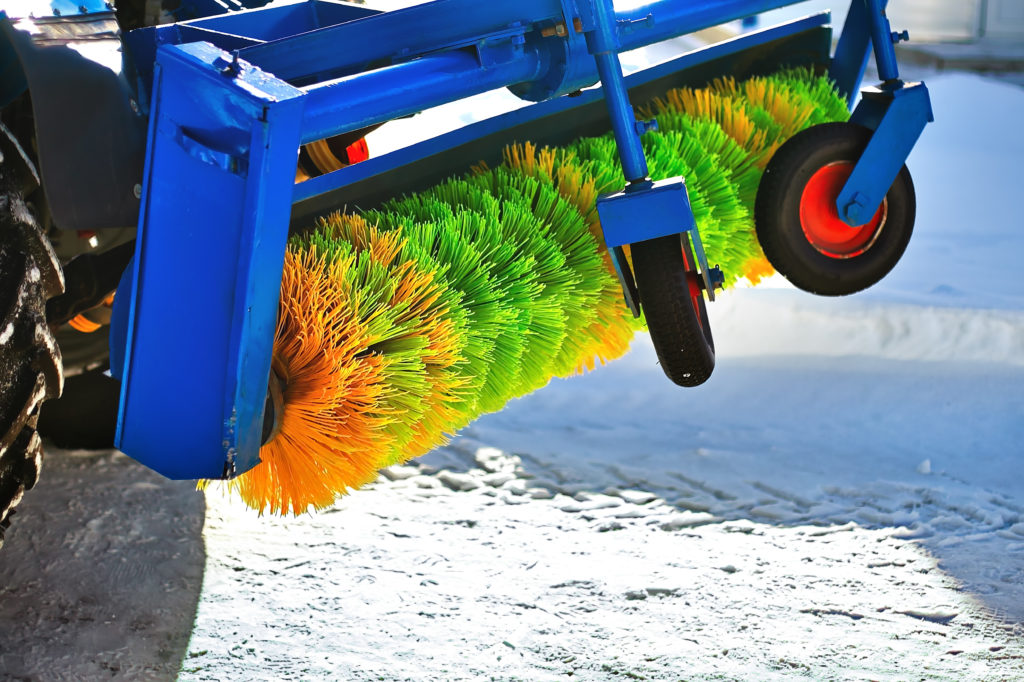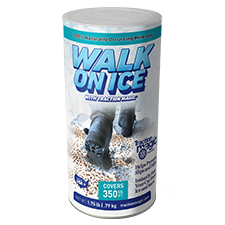Is Ice Melt Bad For Concrete?

Concrete is a porous material, which means it absorbs water. This is especially true in the summertime when temperatures are high and concrete tends to go through more cycles of freezing and thawing. Water that seeps into cracks in the concrete can freeze there, expand, and break apart the surface of your driveway or patio. If this happens over time, you may end up with a large crack in your driveway or patio instead of just small ones here and there.
Is ice melt bad for concrete?
The answer depends on what type of ice melt you’re using.
When your driveway is exposed to the elements, you inevitably have to deal with salt damage.
To prevent this damage and keep your driveway looking great, ensure that you’re using the right ice melt.
There are many different types of salts available on the market today. Some work better than others when dealing with different weather conditions and temperatures.
Sodium chloride, also known as table salt, is the same exact substance that causes concrete to erode. The difference between sodium chloride and calcium chloride (or any other salt) is that sodium chloride is more corrosive than calcium. If you have ever spilled water on your kitchen table or sidewalk and seen it start to disintegrate into chunks of dirt and dust, it’s because of the destructive properties of salinity.

Calcium chloride causes concrete to lose its structural integrity over time.
Concrete expands and contracts as temperatures rise and fall, which can make it prone to cracking if you live in an area with extreme cold or heat (like Minnesota). The expansion of calcium chloride in water causes microscopic explosions in concrete; as the water evaporates over time, the crystals stay behind and continue to expand until they crack through the surface of your driveway or sidewalk.
How to melt ice on concrete steps and driveway
Safe Thaw by Gaia is a biodegradable ice melter made from all-natural ingredients. It’s safe for pets and children. So you can use it inside your home and outside on concrete surfaces. Safe Thaw by Gaia does not harm plants or grasses because it does not contain any sodium chloride (which is present in rock salt and other conventional deicers).
Safe Thaw contains modified urea as its main active ingredient. Potassium chloride also helps prevent corrosion of metal pipes and fittings that could be vulnerable to damage from traditional deicers that contain sodium chloride or calcium chloride.
100% salt & chloride-free, fast acting Ice Management Solution
Conclusion
We hope we answered your question— is ice melt bad for concrete. If you’re looking for a way to melt the ice on your concrete steps, you might want to try something different than calcium chloride and sodium chloride. These chemicals can cause microscopic explosions in concrete and make it lose its structural integrity over time. Instead of using them as an ice melt, consider using Safe Thaw which is completely safe on concrete.
Try Also Our Other Winter Safety Products:
Safe Paw
The Original and #1 Selling Pet and Child Safe Ice Melt for over 20 years. Guaranteed environmentally safe –It won’t harm animals or children, and it won’t damage your property. That’s Safe Paw. Safe Paw can change how winter affects our planet.

Walk On Ice
The handy disposable canister can be taken everywhere, with the same 100% naturally occurring minerals that provide instant traction on ice or snow. Use it on sidewalks, steps, or as an instant traction agent for your car.


